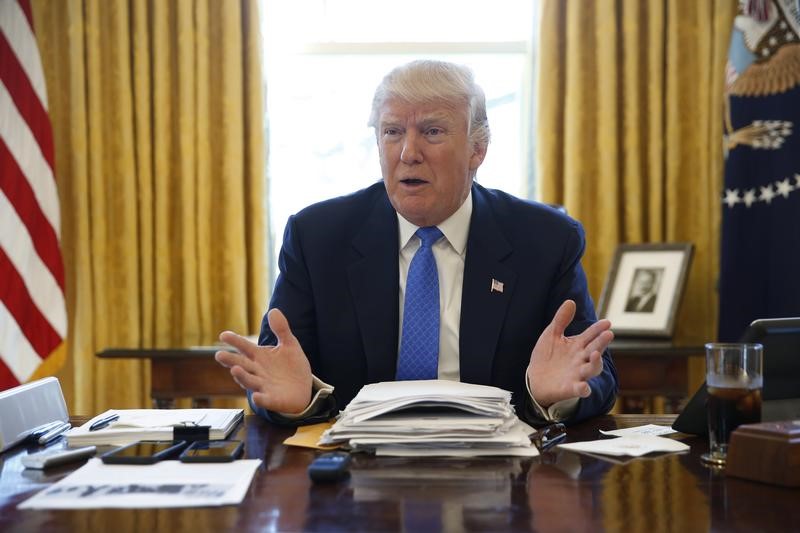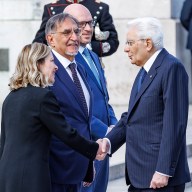BERLIN (Reuters) – Germany does not yet have a full picture of the approach U.S. President Donald Trump’s administration is taking on foreign, security and trade policy but is keen to engage with Washington on these issues, a Foreign Ministry spokesman said on Friday. “We don’t yet have full certainty about how the new U.S. administration is going to position itself on foreign, security and trade policy questions,” ministry spokesman Martin Schaefer told a government news conference. “We have every interest in getting in touch with important figures in the slowly growing U.S. administration,” he added.
Germany is still getting to grips with the new U.S. president, who has spoken critically of its dominance in the European Union and praised Britain’s decision to leave the bloc.
Chancellor Angela Merkel has yet to meet Trump since his inauguration, though she was the key European ally of his predecessor Barack Obama.
Schaefer ruled out striking a bilateral trade agreement with the new U.S. government, noting that exclusive responsibility for trade policy resides with the EU.
“That’s the legal status that we do not question at all,” Schaefer said. “The new political constellation in the USA and anywhere else should not tempt anybody to take a different view.” Before U.S. Vice President Mike Pence visited Brussels and pledged America’s commitment to the EU, White House chief strategist Steve Bannon met with a German diplomat and signaled that he favored conducting relations with Europe on a bilateral basis, according to people familiar with the talks. Schaefer declined to discuss the conversation, but said Pence had uttered “very encouraging and positive words” about the EU during his visit to Brussels last week.
He said Germany would not tire of telling its American partners about the advantages of European integration – both for Europeans and for Americans.
He added that Germany wanted to talk to the new U.S. administration and was using all available channels to share its view on topics like Europe, NATO, trade issues and crises in countries like Syria, Libya and Ukraine. (Reporting by Michelle Martin; Writing by Paul Carrel and Michelle Martin; Editing by Mark Trevelyan)
Germany says unsure of Trump trade stance, but keen for U.S. talks

Reuters
















